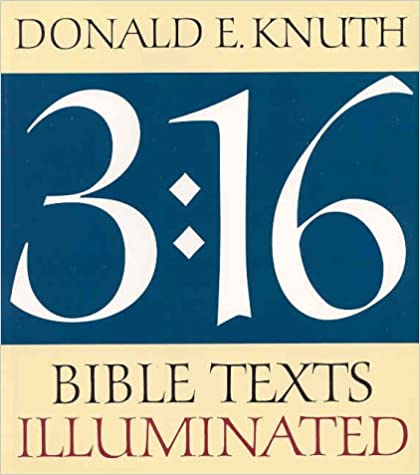When he volunteered to teach a Bible study course, computer scientist, master programmer, creator of TeX, and author of The Art of Computer Programming, Donald E. Knuth (a Fourmilab visitor) pondered the two main ways of reading the Bible.
Method 1: We can read it straight through, for context. By reading at normal speed, we can follow the flow of ideas and get intuitive impressions, just as the first readers and hearers of those words might have done. Or, Method 2: We can single out isolated verses, for meditation and/or scholarly study. By focusing on small details, it’s possible to understand the deeper significance of a passage.
Both of these ways are important. Method 2 is most satisfactory for group study, since Method 1 works best when a person can read at leisure and without interruption.
But how to select the passages to study? After surveying various ways to study scripture, Knuth chose a different approach.
My idea for a Bible class was based on a fourth way to select Bible verses for study, making use of a mathematical principle that provides an effective way to gain knowledge about complicated things: A large body of information can be comprehended reasonably well by studying more or less random portions of the data. The technical term for this approach is stratified sampling.
Knuth’s idea was to pick a chapter and verse number, essentially at random (but with the chapter number not so large it excluded many shorter books), then examine that chapter and verse from each book in detail.
During the next four months I found that the selected material unfolded itself almost magically. The class succeeded beyond my wildest dreams.
He summarised the experience and results in the 1991 book 3:16 Bible Texts Illuminated which has become somewhat of a collector’s item.

Choosing chapter 3 and verse 16 (well known from the Gospel of John, but with no special significance in any other book), he surveys every book that contains such a chapter and verse (two books of the Old Testament and five of the New are too short and omitted), providing a detailed exegesis of the book and the specific verse, with the verse illustrated for each book by an eminent typographer and graphic artist.
As with so much else Knuth has done, it is unconventional, but brilliant and it works.